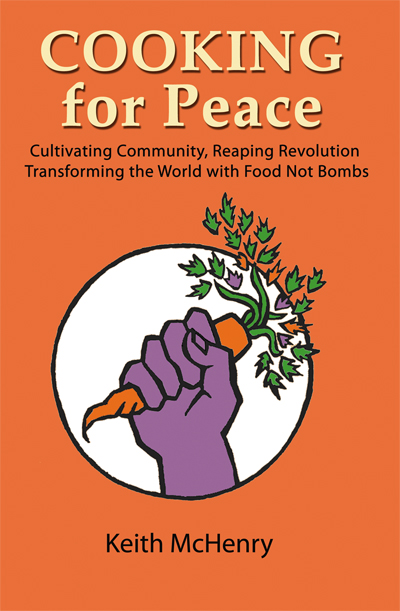 | COOKING for
PEACE Cultivating Community, Reaping Revolution Preface Page 8 With little in the way of competition, seed prices will increase. Just 10 global corporations control 67% of the commercial seed industry with half of that being controlled by Monsanto, DuPont, and Syngenta. "We now believe that Monsanto has control over as much as 90 percent of (seed genetics). This level of control is almost unbelievable," said Neil Harl, agricultural economist at Iowa State University, who has studied the seed industry for decades. "The upshot of that is that it's tightening Monsanto's control, and makes it possible for them to increase their prices long term. And we've seen this happening the last five years, and the end is not in sight." If a farmer tries to harvest their own seeds they can be sued by Monsanto. The company claims they get as many as 500 tips a year about farmers harvesting their own seeds or otherwise failing to pay Monsanto for seeds that may have been contaminated with their genetic information. Percy Schmeiser might be the most famous farmer of Monsanto's victims after the company contaminated his canola crop; canola that was handed down from his father and grandfather, cultivated for nearly a hundred years on his family's farm in Bruno, Saskatchewan. Homan McFarling was also sued by Monsanto for planting seeds he had saved from the year before at his 5000 acre farm in Shannon, Mississippi. Some farmers have even been sentenced to jail for "hiding" seeds from Monsanto, seeds contaminated by Monsanto. This contamination is not limited to commercial farmers. Hopi elders claim that thirty percent of their ancient corn may have been cross pollinated with genetically engineered crops. Most genetically engineered crops are subsidized by U.S. tax payers and fed to animals for use in fast food establishments or low-quality, packaged meals. According to the latest United Nations studies, industrial agriculture is responsible for nearly 70% of global freshwater consumption, using 38% of all land and causing 19% of the world's greenhouse gas emissions. This is largely due to corporate farming of subsidized meat. United Nations FAO's report " Livestock's Long Shadow," claims that 18% of all greenhouse gas emissions can be linked to animal agriculture. These are only some of the examples that hunger and poverty is an increasingly urgent crisis. |
